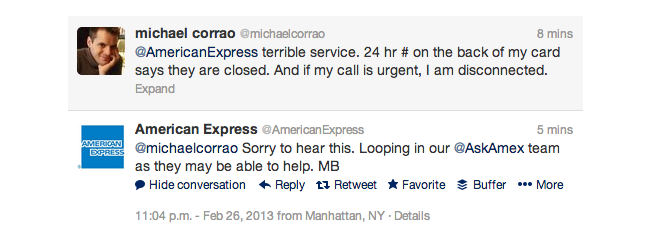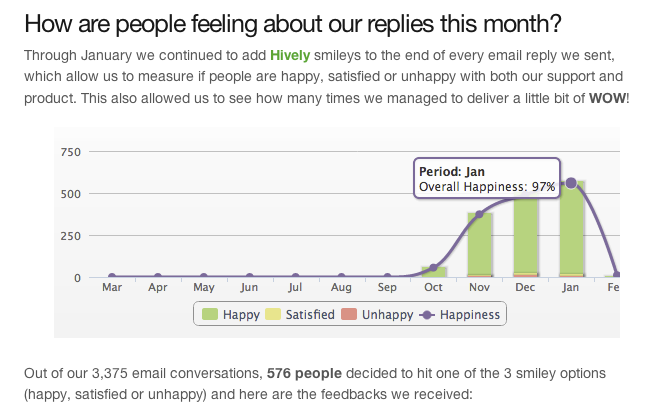10 Ways to Make Customers Fall in Love with Your Business
Nurturing relationships with your customers is a crucial part of growing a successful business. In this age of automation and innovation, caring for your customers has never been more important.
At any moment, an unhappy customer can share their opinion with the masses through social media and the web and negatively affect your business. That’s why it’s even more important than ever to create an excellent experience for your customers to help develop your company’s relationship with them into love.
Walt Disney said it best, “Do what you do so well that they will want to see it again and bring their friends.” Creating love between your company and your customers can help scale positive word of mouth that’s absolutely priceless.
Creating a customer-focused culture of this nature is a business opportunity that should not be overlooked. Most businesses are failing when it comes to the customer experience, which is your opportunity to swoop in and enchant those same customers into falling for your company.
The data speaks for itself:
- Only 37% of brands received good or excellent customer experience index scores in 2012. Whereas, 64% of brands got a rating of “OK,” “poor,” or “very poor” from their customers. Source: Forrester Research
- As many as 89% of consumers began doing business with a competitor following a poor customer experience. Source: RightNow
- Up to 60% of consumers will pay more for a better customer experience.Source: Desk
- Average annual value of each customer relationship lost to a competitor or abandoned – $289. Source: Genesys Report
It’s quite clear that now is a good time to solidify your relationship with your customers in a meaningful way. Here are 10 ways to help make your customers fall in love with your business.
1. Treat your Customers Right – Genuinely Interact
Happy customers who get their issue resolved tell 4 to 6 people about their experience. So that’s a way to significantly influence the word of mouth about your business. Don’t act as a nameless or faceless business; genuinely talk with your customers as a person representing the business. Address your customers by name, and tell them your name at the very beginning of your interaction.

Talk to your customers as you would in person, not like you would in a press release. Examples of this are noticeable when it comes to customer service on social media where the genuine shine through and the others seem forced and uptight, which is the opposite of being “social.” American Express does this well onTwitter, ensuring all customer concerns are answered in a timely manner with a friendly and personal response, signed by the employee who’s doing the tweeting.
2. Don’t Come on Too Strong – Respect Your Customers
A third of consumers say they experience rude customer service at least once a month, and 58% of them tell their friends. This is exactly how word of mouth can work against your company’s reputation for the long term. It’s very important to be respectful of a customer’s mood when trying to resolve an issue they have with your company.
Keeping your patience is key to giving your customer the time to air out their issue. And, in turn, it creates the opportunity for you to help resolve the issue and make them comfortable. The more comfortable the customer is the more likely they’ll share valuable feedback that can help prevent similar issues from occurring again in the future.
3. Always Listen – Hear What Your Customers are Saying
At a time when it’s easy to have a two-way dialogue with your customers, it’s important to truly listen. When listening to your customers, take into account what changes your organization should make from this feedback, and then follow through. Your customers are the lifeblood of your organization, and not dealing with the reasonable requests could cause backlash.
Use the following methods to gather feedback from your customers:
- Surveys
- Focus Groups
- Observation
- Point of Sale
- Customer Service
- Social Media
- Communities and Groups
- Email and Web Forms
4. Continue to Satisfy – Offer Ongoing Support and Specials
The #1 reason for customer attrition is dissatisfaction with customer service. Do everything in your power to provide excellent service to your customers on an ongoing basis. Respond quickly and enthusiastically, and be ready to present a special offer or discount with the hope of up-selling the customer to buy more.
There’s never any reason to slow down on satisfying your audience, especially when they’re chatting with you live over the phone. It’s important to note that 81% of companies with strong capabilities and competencies for delivering customer experience excellence are outperforming their competition. Take note, customer satisfaction is a key differentiator in a sea of other companies.

Besides offering support, ongoing specials will continue to help enchant and satisfy your customers for the long term. Create engaging multi-channel promotions centered around discounts, giveaways, sweepstakes, and contests. Distribute these offers via email, social media, print, in-store, and across your other marketing channels for full exposure, much like HairDazzle has done on Twitter above.
5. Treat a Customer Like a Valued Partner – Communication is Two Way
As previously mentioned, take your customer’s feedback seriously and act upon reasonable requests. What’s the point of listening if you’re not going to act on that feedback? Make sure it’s clear that you want your customer’s feedback and that your business truly values them as a partner.
If you’re looking for an example of how to show your customer that their opinion matters, look at what the Buffer app team is doing. Buffer app is a social media management tool that helps businesses and individuals schedule their content for the best times to share and get engagement. The Buffer blog features a variety of quality content focused on marketing, achieving happiness, and a monthly series known as the Happiness Report.

This report highlights how the Buffer team is managing customer support each month by what worked well, what didn’t work well, what they plan to work on for the future, and finally, a request for feedback from their customers. This is a lesson for all businesses on how to be completely transparent and actively allow your customers to partake in improving your product for the future. Focusing on your customer to this degree is a major way to strengthen their trust, loyalty, and overall love for your company.
6. Build Trust – Alert Customers to Large Scale Changes, Good or Bad
It takes 12 positive service experiences to make up for 1 negative experience. This is how sensitive trust is between a business and its customers. No matter your size, keep your customers in the know when it comes to positive and negatives changes to your products and services that affect them. It’s crucial to tread lightly when making changes to your products and services because your customers have become accustomed to what you’ve already got.

Here’s an example of what not to do.
Recently, Instagram updated its terms of service but neglected to be clear about the changes that would be made to the social network. The wording was confusing, and therefore, the company’s intentions were not clear. Their users immediately voiced concern across the web about these changes. Most of this feedback was outrage and many left the service or threatened to leave, like power user National Geographic. Instagram quickly responded to the outrage andreversed their decision to update their terms of service. In the end, the situation was handled well in terms of the cleanup; but now, due to the poor communication around their terms of service, Instagram has lost the trust of their audience, which is hard to regain.
Here’s what to do to gain trust:
- Heavily research whether changes to your company could alter public perception.
- Be methodical in how you communicate the changes to your product and services.
- Tell your customers when you’ve made a change, you’ve screwed up, or you’ve done something right. A healthy mix will give your customers a transparent look into your company that can’t be forged.
- Find value in the feedback about your company changes.
7. Be Transparent – Honesty is Crucial When it comes to Mistakes
Being transparent in the digital age is a must. Much like the principles discussed above, transparency is a critical factor in building trust, satisfaction, and love from your customers. What does it mean to be transparent?

- Transparency means that you are not afraid of feedback.
- Transparency means that you have nothing to hide.
- Transparency means your employees’ personal and work persona blur.
- Transparency means you like to have conversations with your customers.
8. Follow Through on Your Word – Follow Up on Promises
Your word is your bond. Following up on your promises helps show the transparency of your business, while helping to build a feeling of trust and dependability with your audience.
Manage the expectations of your customers to ensure realistic goals are set and can be met. By remaining consistent in your messaging, your customers will learn what they should expect from you in the future.
F.W. Nichol said it best, “When you get right down to the root of the meaning of the word “succeed,” you find that it simply means to follow through.”
9. Recognize Responsibility – The Customer is Always Right
No matter the circumstance, the customer is always right. This is a rule to guide your business through its growth, from customer service to user experience to product development. To help set this in motion, create a customer service policy to show your customers they are always right. Organize this policy into three parts:
- Highlight phrases for your company to use that’ll make your customers happy. Again, consistency and a personal touch go a long way.
- Never let your customers forget your business by following up effectively. Keep it personal by following up on special occasions and consistently writing handwritten follow-up notes.
- Define how to deal with unsatisfied customers with action steps to ensure there is a thorough process for all employees to follow to resolve a customer issue, ideally turning unhappy customers into your strongest advocates.
10. Always Say “Thank You” – Kindness and Gratitude will Take You Far
Last, but certainly not least, always say “Thank you.” As many as 3 out of 4 customers say they have spent more with a company because of a history of positive experiences. Kindness and gratitude for a customer’s business is an undeniable way to further enchant them for the long term.
Craft every thank you sent out from your company to be specific to the customer, relevancy is key. Be as appreciative as possible to your customers for taking the time to go through the process of resolving their issue. Finally, follow up with a good old fashioned “Thank youNurturing relationships with your customers is a crucia